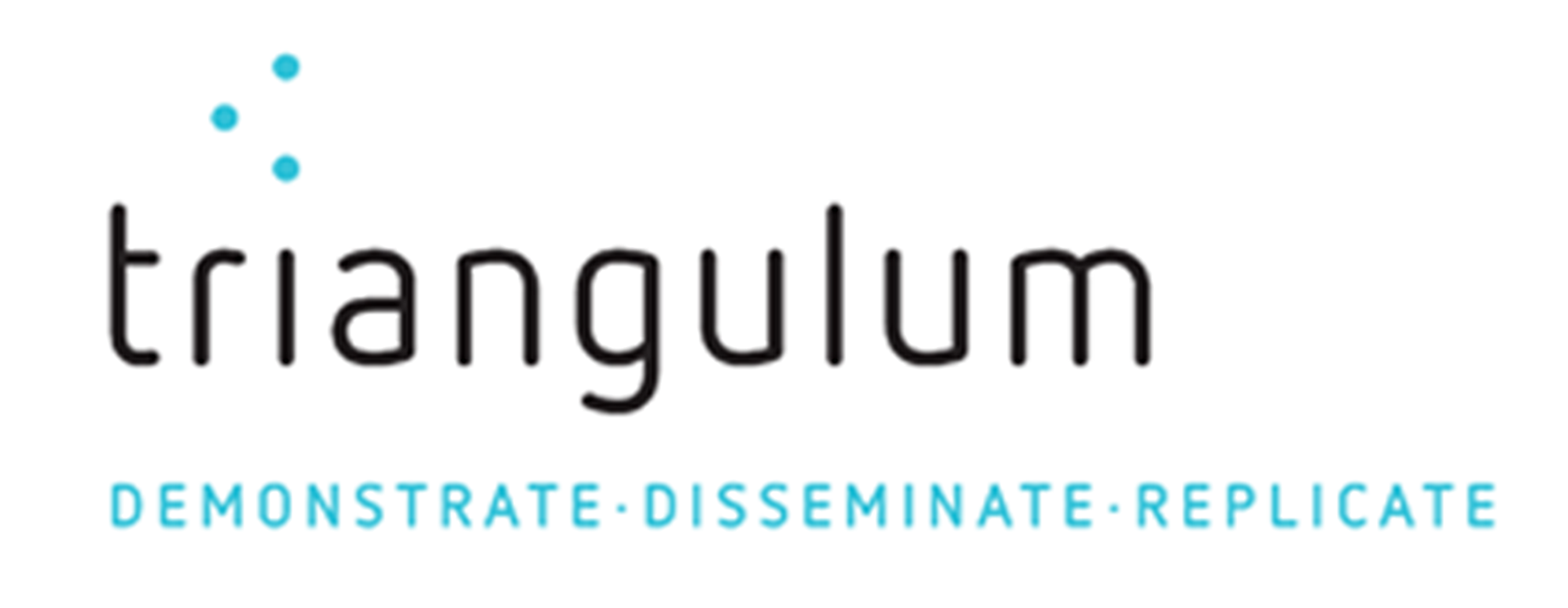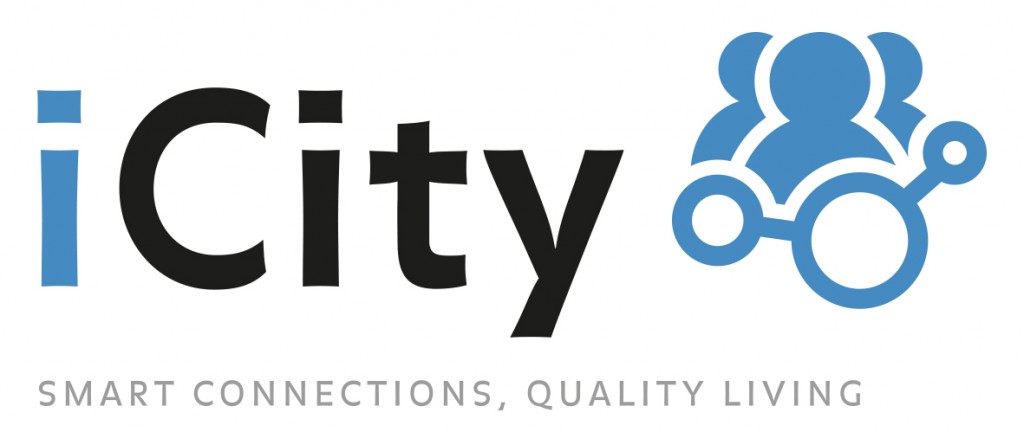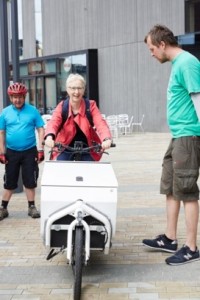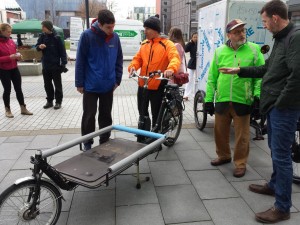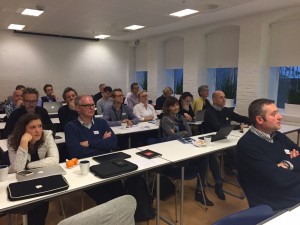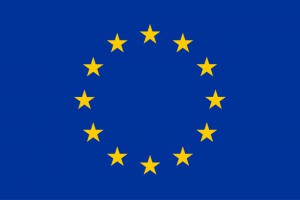
(Picture: Fraunhofer IAO)
From 10th – 12th October 2016 the Triangulum partners met in the follower city Sabadell to discuss the project progress. Cargo bikes, parking apps, smart home safaris – these were some of the measures that the Triangulum Lighthouse Cities Manchester, Eindhoven and Stavanger have carried out during the last months. The three Follower Cities Leipzig, Prague and Sabadell presented and discussed their ideas for future activities. Two intense days of the project meeting were followed by a review meeting with the European Commission, where the progress of the first 1.5 years of Triangulum was discussed.
